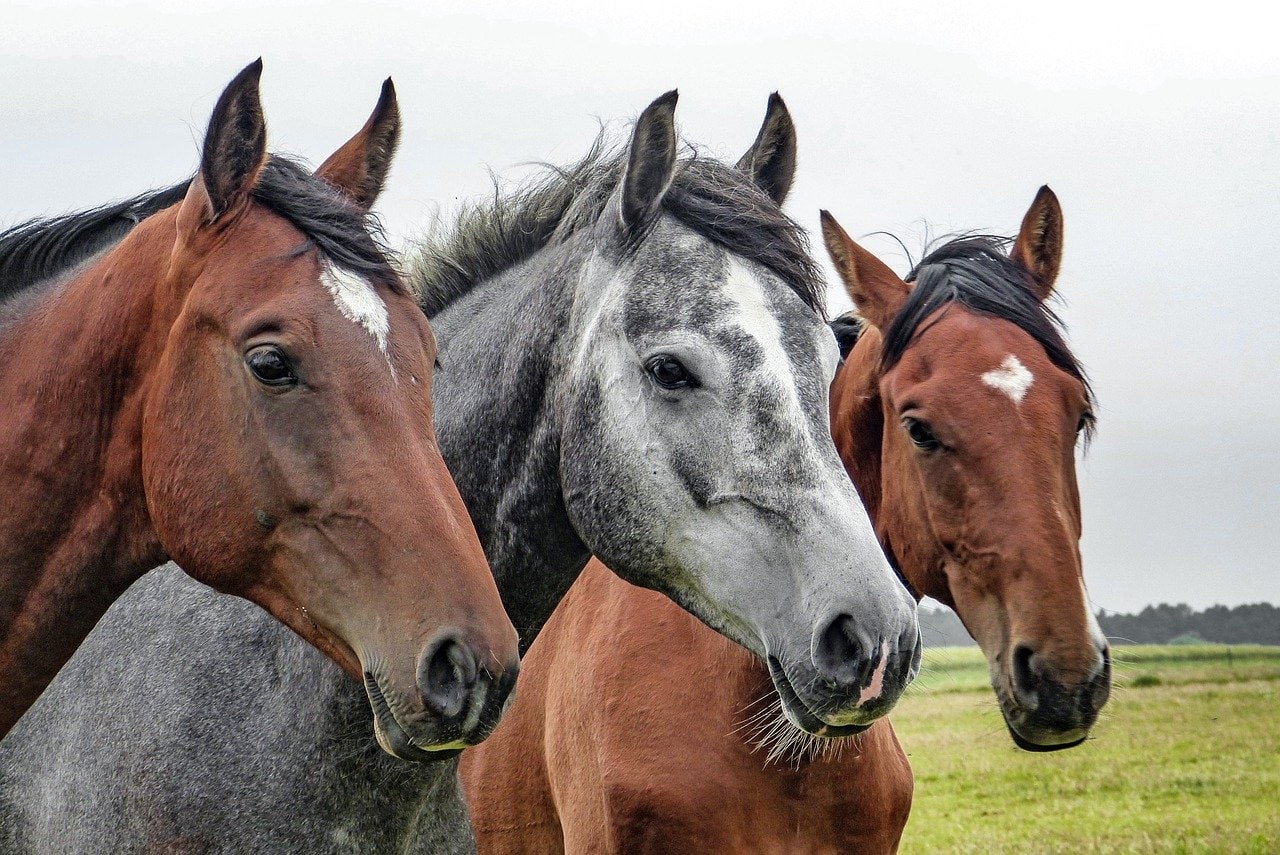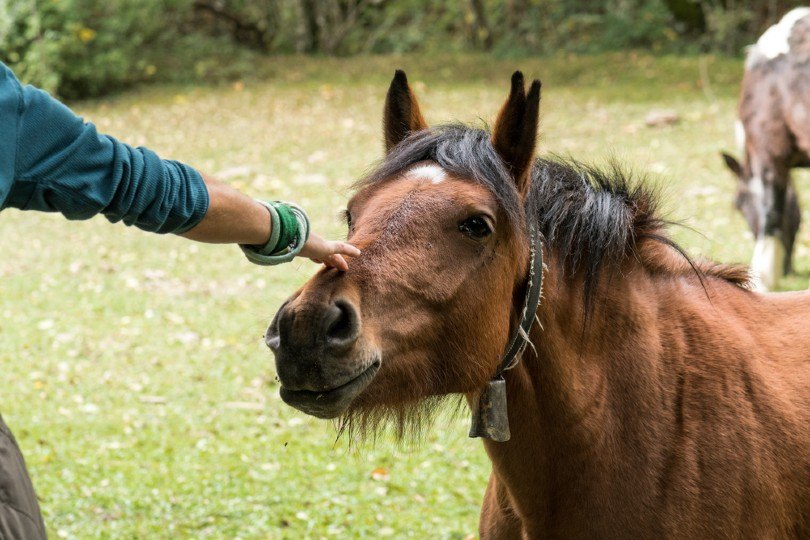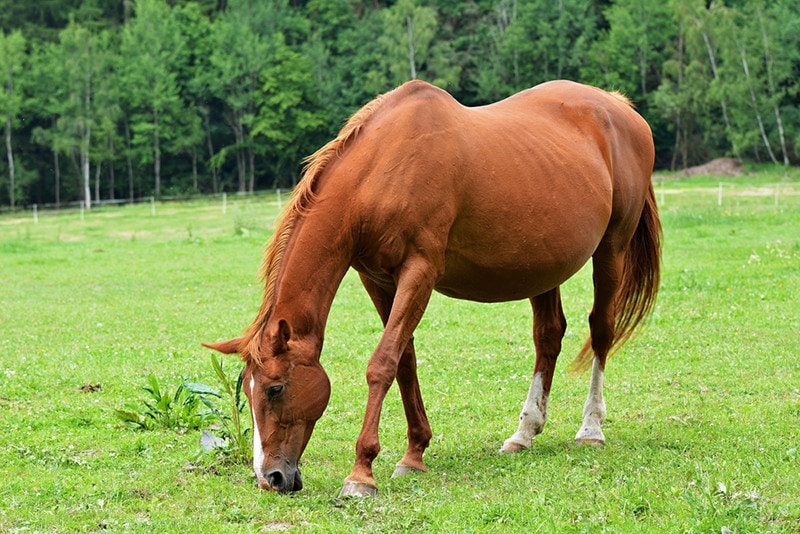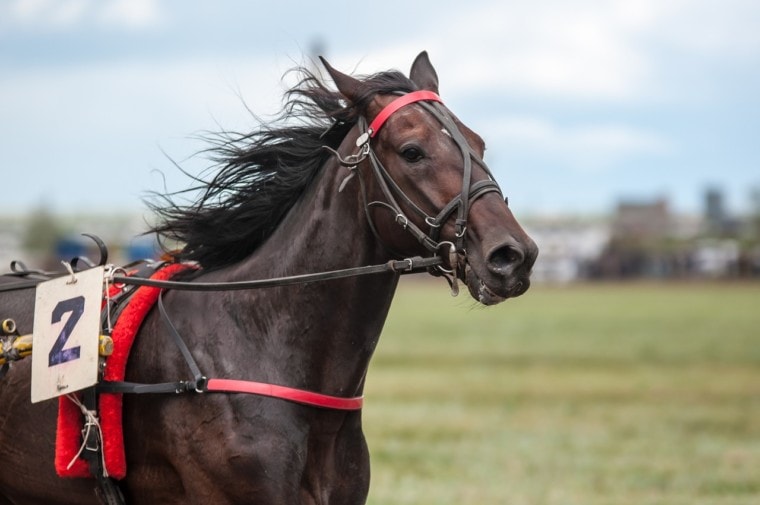
If you were just looking to purchase a horse for regular riding, you could spend well below $10,000 and get an incredible mount. But if you wanted a racehorse, you’d be spending around $75,000.
Racehorses might look similar to other horses at a distance, but their abilities and bloodlines make them far pricier, with some specimens selling for multiple millions. Granted, these horses can win millions through a successful racing career, and possibly even more as studs.
So, how much does the average racehorse cost? What’s the cheapest you could find one for? We’re going to answer these questions and more in this article.
What’s the Average Price for a Racehorse?
Racehorses are bred and kept specifically for the purpose of racing. They receive special training and come from distinct bloodlines with a proven history at the racetrack. All of this combines to multiply the value of these horses far beyond that of your average mount.
The price of a racehorse varies greatly depending on several factors, but across the board, the average cost of an average racehorse is about $75,000. Many horses sell for cheaper and some go for prices many times higher.
In April of 2021, at one of the largest sales of racehorses worldwide, the Keeneland Digital Sale, several horses went for prices of $150,000 or higher, with one even commanding $210,000. On the other hand, there were a few that went for a fraction of this price. Four horses sold for less than $10,000 each with the lowest prices being a filly that sold for only $6,000, and a colt that went for a mere $5,000.
Of course, you can’t discuss racehorse prices without mentioning Fusaichi Pegasus, which is the most expensive racehorse ever, as of right now. After earning nearly $2 million in a prestigious racing career that saw him winning the 2000 Kentucky Derby, this horse was purchased by Coolmore Ireland, a top-tier racehorse breeder, for an incredible $70 million. It was expected that Fusaichi Pegasus would continue on to a successful career as a stud, but that wasn’t in the cards. Though his stud fee started at $150,000, today, it was dropped to a measly $7,500 before he was removed from stud duties altogether.
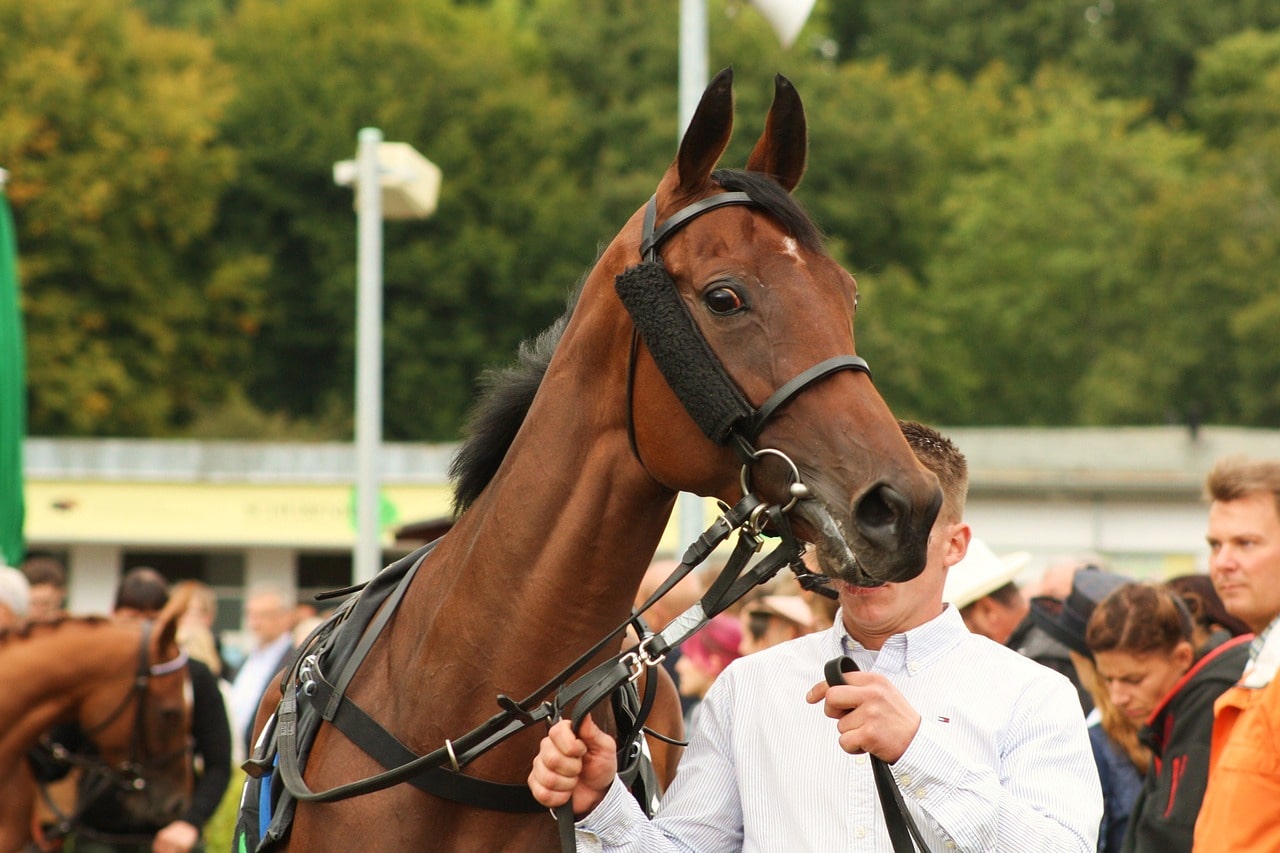
Which Factors Determine the Price of a Racehorse?
As you can clearly see, there’s some major discrepancy between the cost of racehorses at the top and bottom of the price spectrum. But what makes one racehorse worth millions while another is only worth a few thousand?
In truth, quite a few factors play into the pricing of racehorses, but the following factors have the largest impact.
Pedigree
Where your horse comes from and what genes make it up will be one of the biggest determiners of its potential racing success. This is why horses that were born of proven winners tend to sell for more than horses that are the offspring of unknown sires.
If you want to purchase a horse whose parents were proven winners, then you’re going to spend a lot more money since you’re taking on less risk with your bet. But if you were to purchase a horse that had relatively unknown parents, you’re taking more of a risk with your money because you have no winning track record to base your bets on; you’re just hoping that this horse can outperform its lineage. If a horse is born to winning parents, it just has to continue the tradition.
This is why studs make so much for their stud fee. Some winning horses such as American Pharaoh command $200,000 or more for a stud fee. Tapit, who has sired horses that have earned more than $168 million on the track so far, once required a stud fee of $300,000, though its offspring regularly sell for more than a million each. As of 2021, that stud fee is just $185,000, which is still an impressive number.
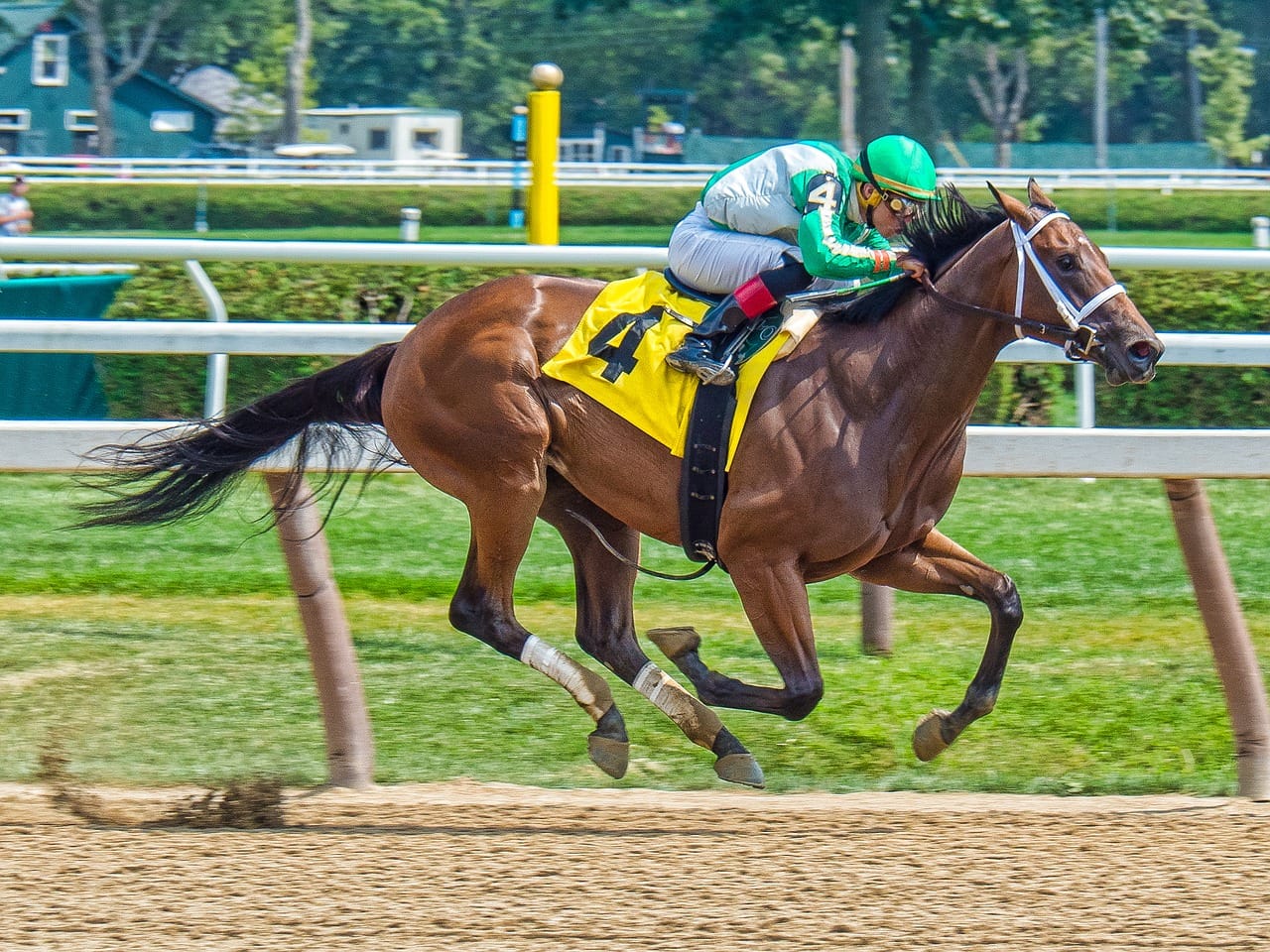
Earnings
Once a racehorse has proven itself on the track, it becomes immensely more valuable. Every time a horse wins, in fact, its value rises. After a horse has racked up a million or more in earnings, that horse will be worth substantially more than what it was originally purchased for. Even if its racing career is over or nearing its end, such successful horses have a high likelihood of continued success as studs.
Age
Every year, tens of thousands of dollars are spent on horse upkeep and training. As each year passes, these costs add up, increasing the sale price of a horse. Furthermore, you can start to see a horse’s potential more as it ages and undergoes more training. So, two-year-old horses tend to cost more than yearlings on average. Of course, this changes once horses pass their prime racing age, and at that stage, only proven winners retain their value.
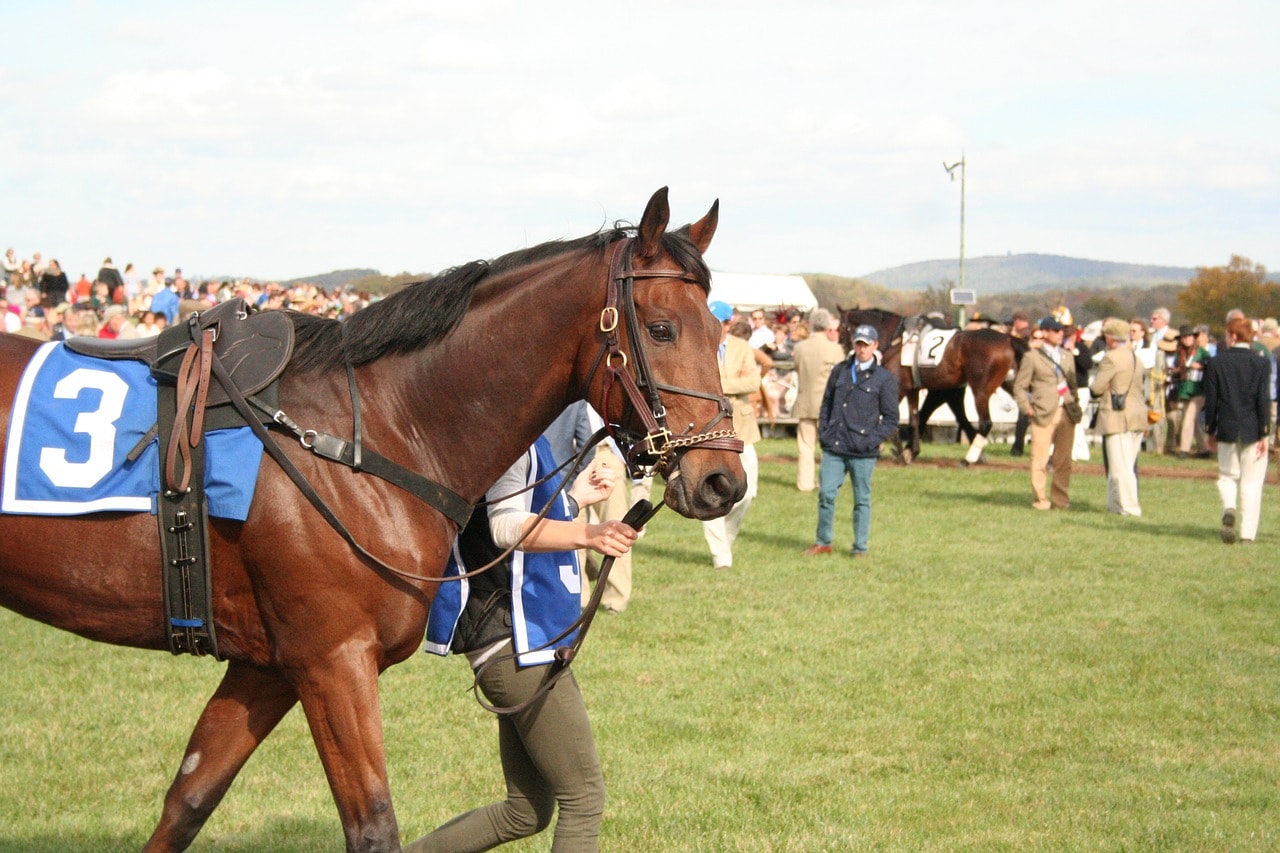
Purchase Place
Where you purchase your racehorse and who you purchase it from can have a drastic impact on pricing. Certain auctions and breeders are known for commanding the highest dollar, so you should expect to spend more purchasing from them. But there are other purchasing avenues available where costs are lower, such as claims races or auctions.
Costs to Maintain a Racehorse
If you thought the cost of purchasing a racehorse was steep, you’re definitely going to balk at the price of maintenance and upkeep. Keeping a horse can be far pricier than just purchasing one. You have to consider training, boarding, jockey fees, food, medical attention, and more.
Training Fees
Luckily, training fees encompass your main expenses when it comes to your racehorse. Generally speaking, trainers will cover the basic care and upkeep of your horse. This includes feeding them, general upkeep, boarding, transporting them, and training for the track. In exchange, you’ll pay a daily fee that usually ranges from $60–$120, which adds up to between $1,800–$3,600 monthly.
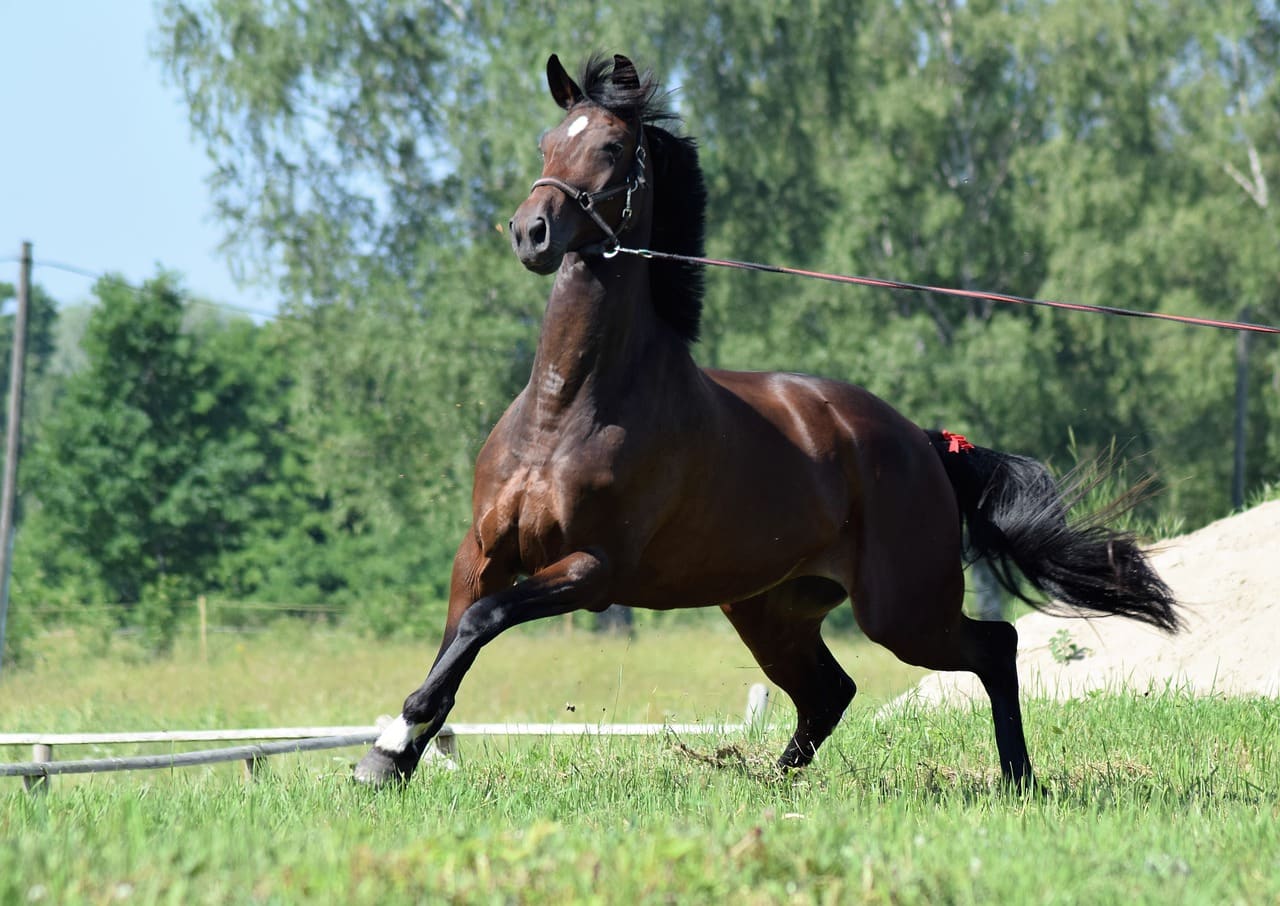
Medical Expenses
When investing so much into your racehorse, the last thing you want is some sort of medical concern taking it out of the race. You’ll want to make sure you find a skilled veterinarian to assist with any concerns, which will likely cost an average of about $500 per month, though pricier horses tend to be accompanied by pricier vet bills as well.
Farrier Expenses
Horseshoes are to racehorses what tires are to race cars. Just like race cars need great tires and go through an awful lot of them, racehorses go through a lot of shoes and need considerable hoof upkeep. Your farrier will cost nearly as much as your vet with an average monthly expense of about $300, which should cover the necessary hoof care and two shoe changes each month.
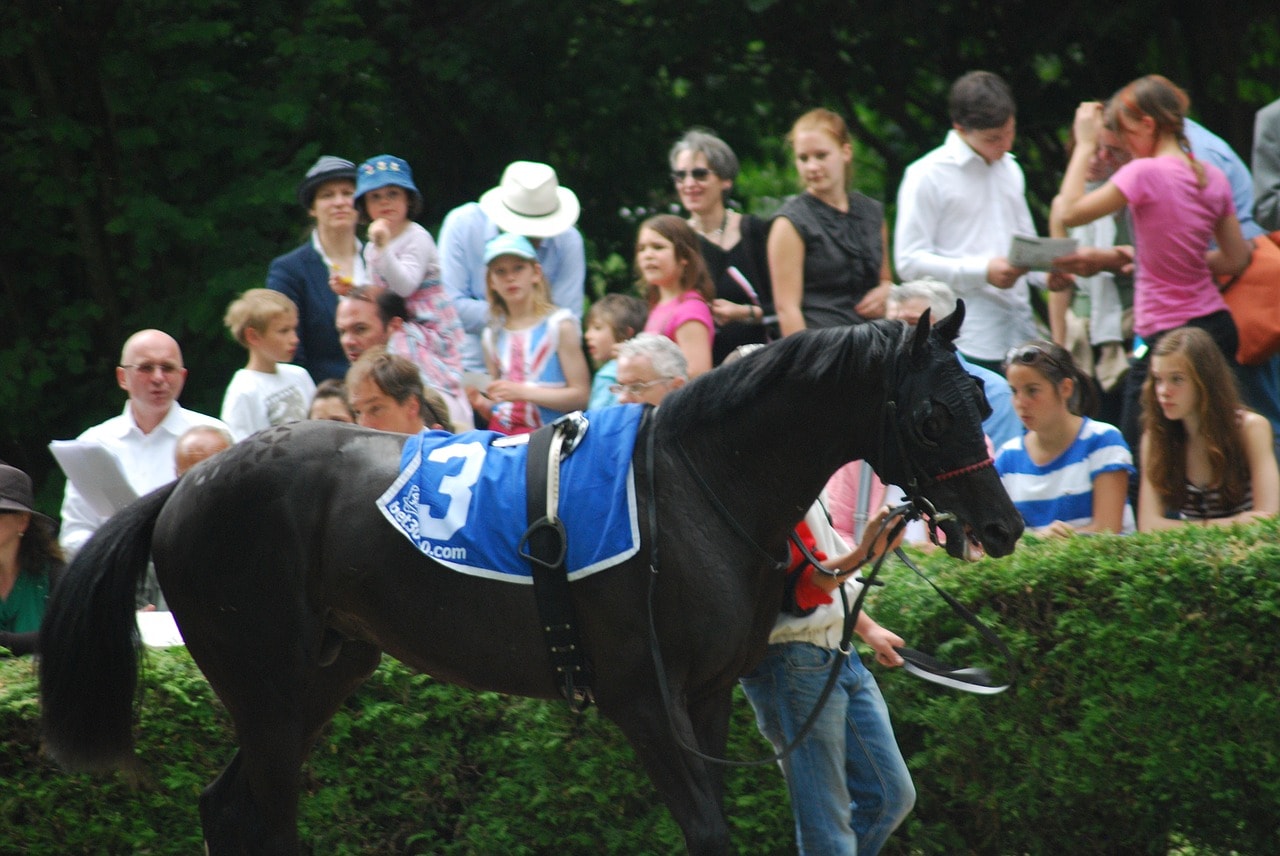
Racehorse Insurance
On average, you can expect to spend 5% of your horse’s value on insurance premiums each year. Racehorse insurance is pretty similar to car insurance. You pay a premium each month to ensure that your investment isn’t entirely lost if something happens to your horse, such as injury or illness that prevents it from racing. If your horse is worth $50,000, then you’ll likely spend around $2,500 per year on insurance premiums, or just over $200 per month.
Race Entries
While some of these expenses have seemed pretty pricey, they pale in comparison to the cost of entering certain races. Naturally, you’re going to want your horse to race; that’s why you paid so much for it in the first place. But entry fees for major races can be exorbitantly expensive.
Let’s take a look at the Kentucky Derby. Before you even think about racing, your horse must be nominated. If you nominate in the first few weeks, you’ll spend just $600. After this, the cost of nomination skyrockets to $6,000. That wouldn’t be so bad, but the entry fee for the actual race is an additional $25,000! Don’t think that will get you running though. If you actually want your horse to participate, you’ll need to fork up an additional $25,000 for a starting fee. Additionally, horses that place third or better must pay a minimum of $500 in jockey fees. Depending on how much you bought your horse for, you might spend even more entering it into the Kentucky Derby!
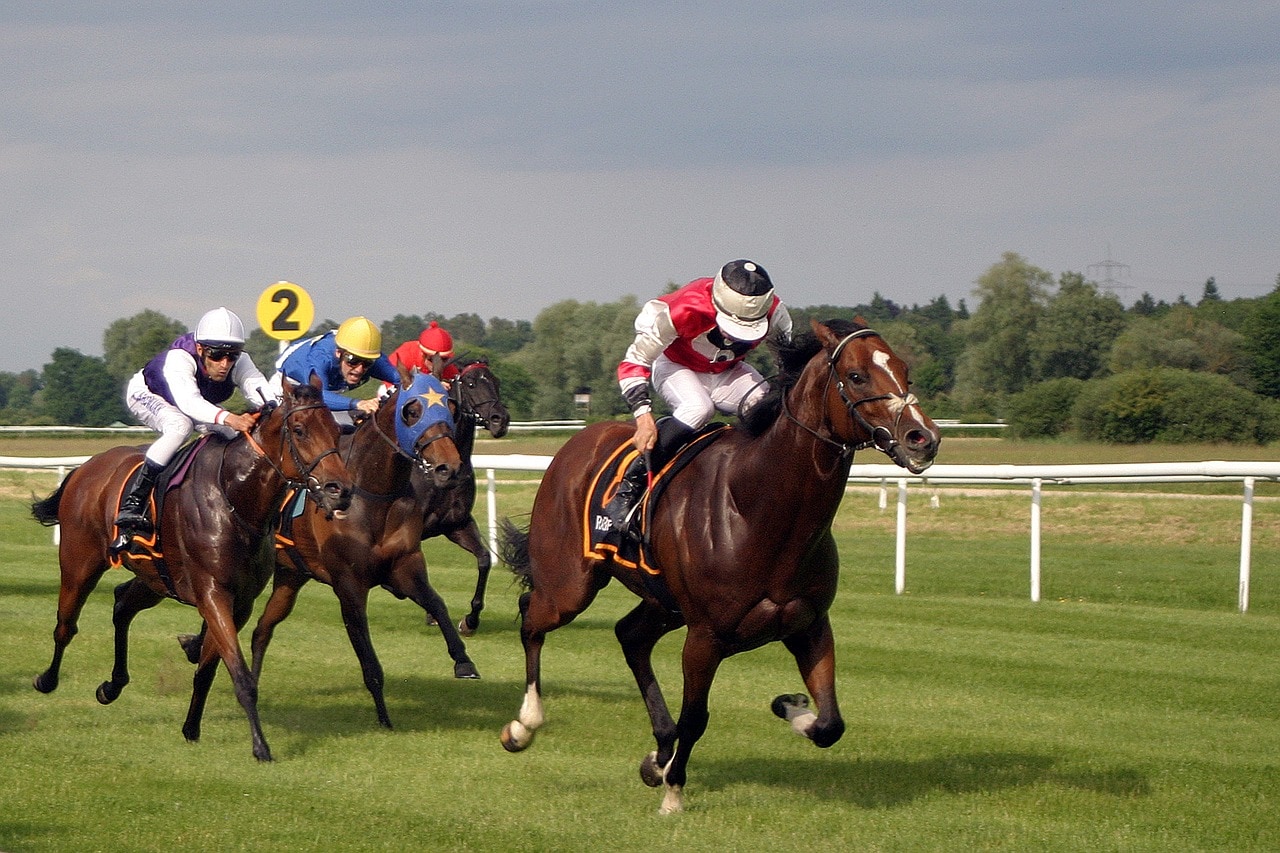
Additional Expenses
We’ve covered a lot of the major expenses, but there are always going to be other little things that add up each month. To cover these additional costs, you’ll want to budget an extra $500 monthly.
What’s the Best Method to Buy a Racehorse?
When it comes to purchasing a racehorse, you have three main routes you could take. Your options are to purchase from a private owner, an auction, or a claims race.
Private Owner
Purchasing a horse from a private owner could be an individual or a breeder. You’ll be able to negotiate the price one on one with the owner, rather than bidding in an auction format. Private sales also have no commissions. You’ll often find that sellers have motivating reasons to let the horse go for less than its full value, which means you might be able to get a great deal.
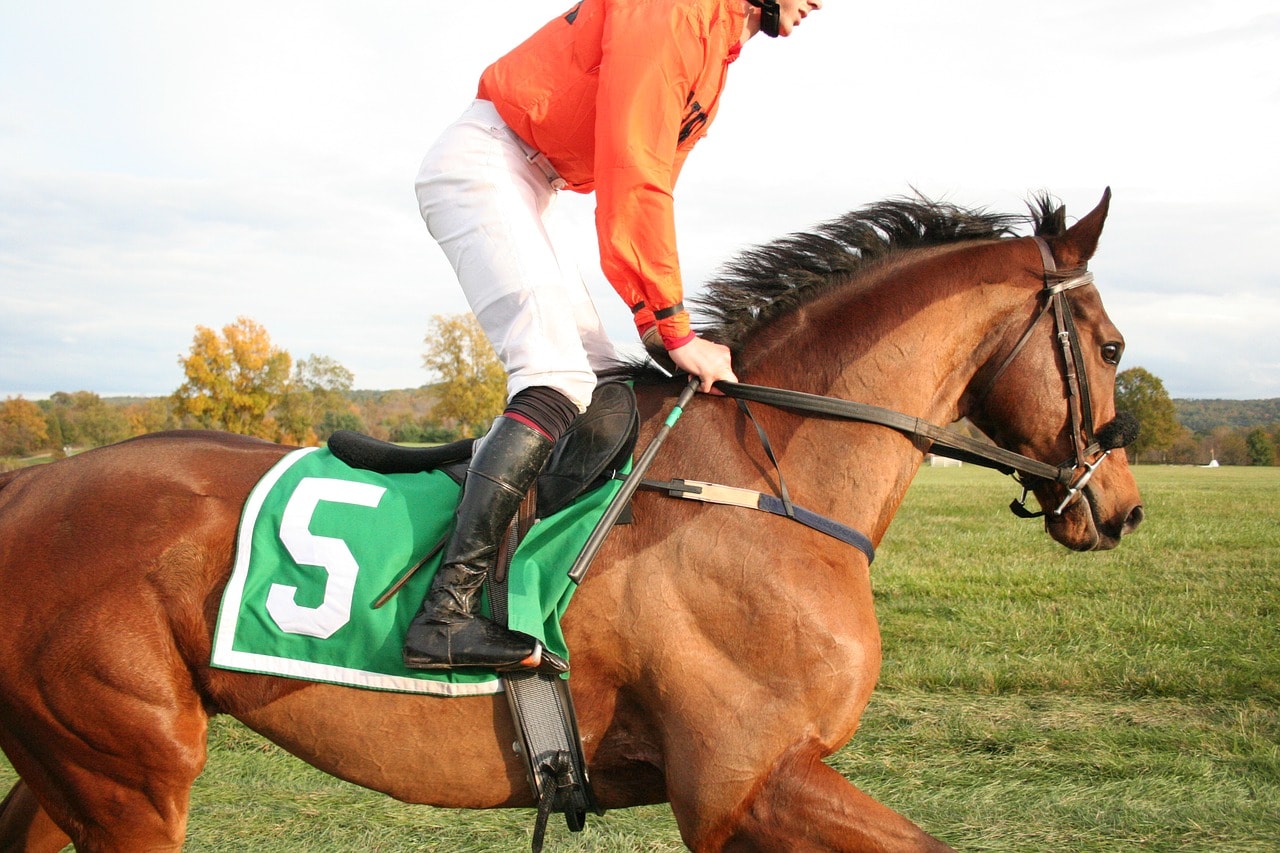
Auction
At an auction, there could be dozens of great racehorses to choose from. But this can also be overwhelming. Plus, emotions can run high at an auction, and you can easily end up bidding much more than you planned on and overspending. At an auction, you’ll be bidding against others, which can also cause the price to escalate higher than it might otherwise. And don’t forget about fees and commissions that you’re sure to pay at an auction.
Claims Race
Claims races make up the majority of races in America. They’re the bottom tier of horse racing, where horses are sold prior to the start of the race. People stake their “claim” on the horse they want. At the end of the race, they’ll pay the claim price for the horse, which is usually the same for every horse entered.
However, any purse the horse may have won will go to the previous owner. So, it’s essentially betting on the horse’s future, and winning horses at claims races can be one of the most affordable ways to purchase a racehorse as the claim price on these horses is often far below their true value.
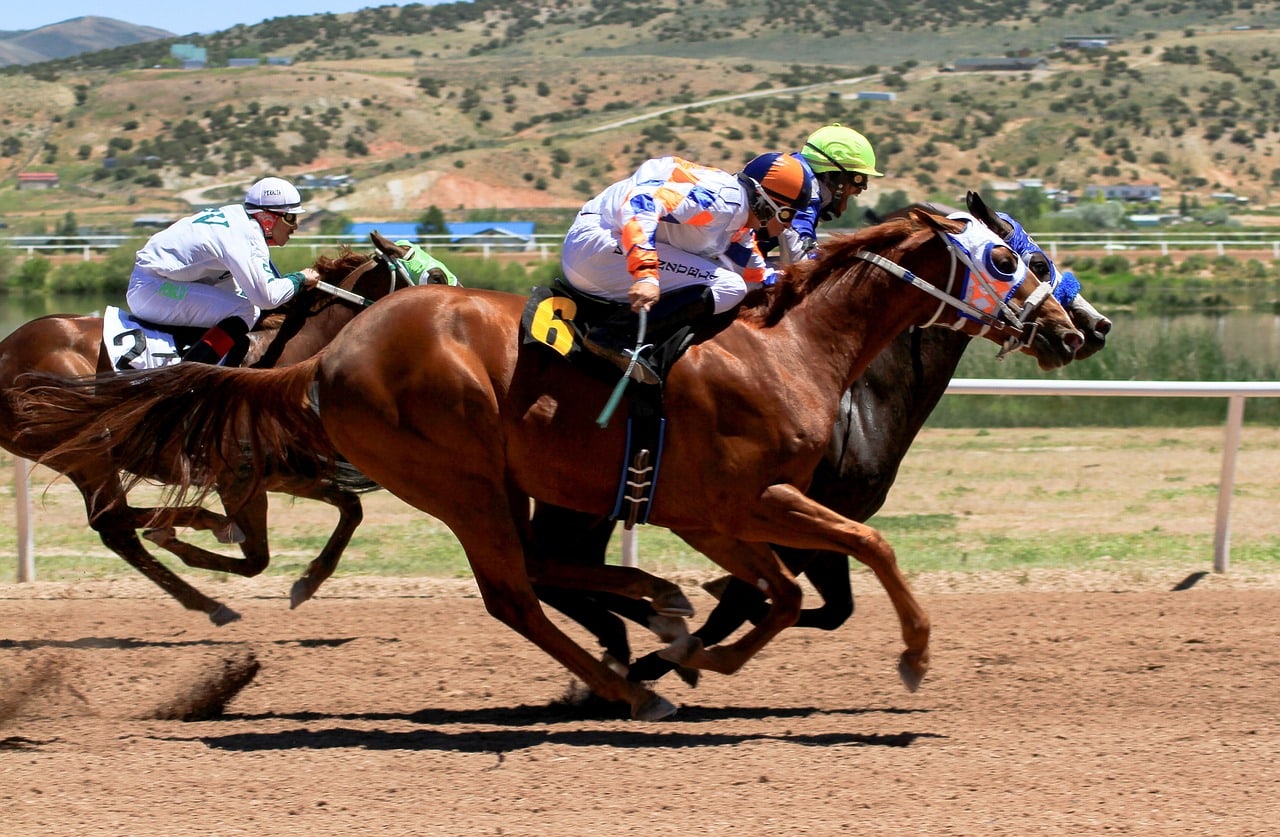
Is Owning a Racehorse Profitable?
The answer depends entirely on the person, racehorse, and decisions made regarding them. For some people that really understand the industry, racehorses, and how to work with them, it can be a highly lucrative investment. However, the vast majority of people who try their luck at horse racing tend to lose out.
Still, you can find some big winners here, just like you’ll see occasional blackjack players take the casino for millions of dollars. One man named J. Paul Reddam came out on top in 2011 after purchasing a racehorse named “I’ll Have Another” for just $35,000. Little more than a year later, he resold that horse for $10 million, after the horse won an impressive $3 million by winning both the Kentucky Derby and the Preakness Stakes, two of the most prestigious races in the world.
But cases like this are the exception, not the rule. Managing such an incredible win takes a lifetime of learning about horses and horse racing. You have to have deep knowledge and understanding of all the different components involved. Even then, it’s always a bit of a gamble. You can never guess the outcome of any race, and many horses that were thought to be surefire champions fell by the wayside without anyone remembering their names.
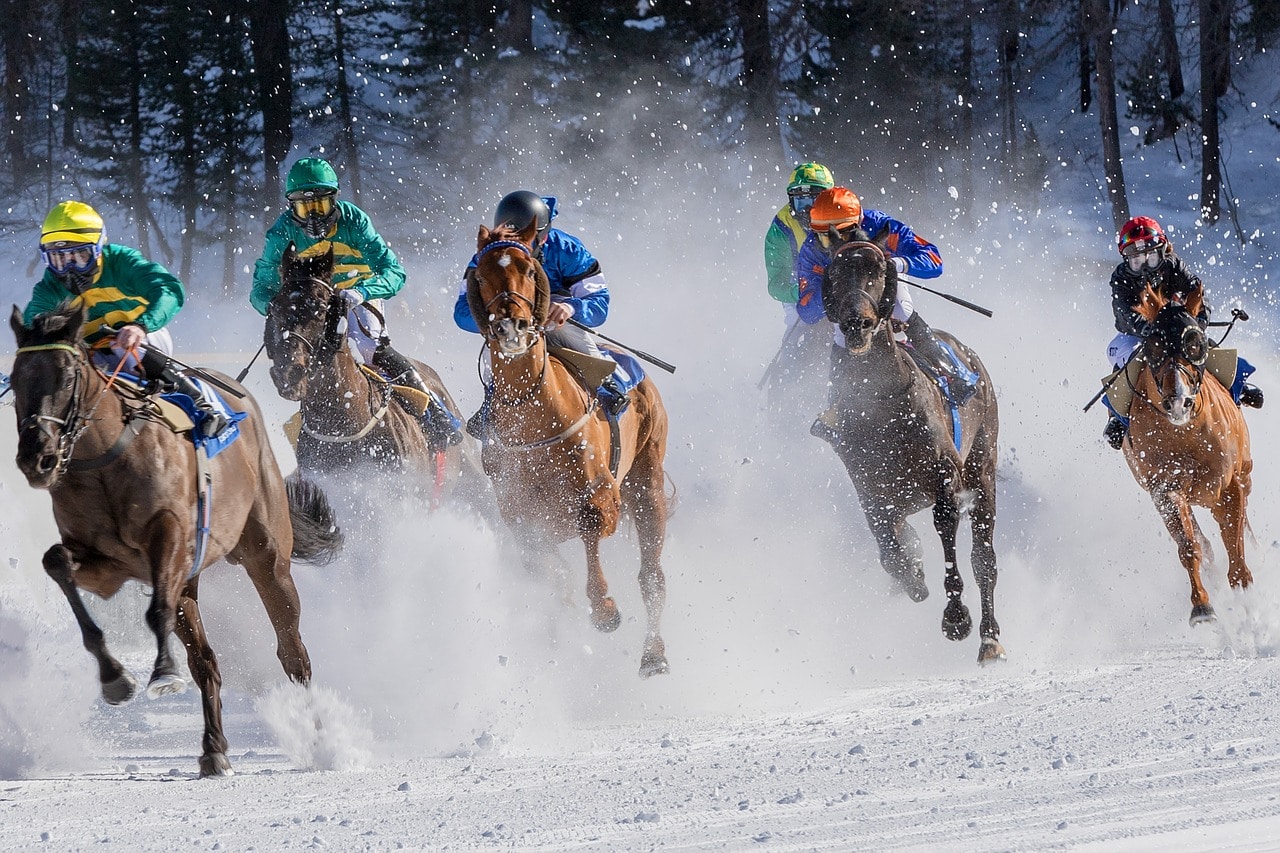
How Long Does a Racehorse Live?
Compared to many other animals kept by humans, racehorses have very long lifespans. On average, you can expect a racehorse to live for 22–28 years. A lot of this is up to chance, though much of it also depends on living conditions and the level of care that a horse receives. Still, freak occurrences happen, and any racehorse could die early or live to be far older than average.
Of course, a racehorse will retire long before it nears 20 years old. Most will retire between the ages of 8–10 at the latest, though many will be forced into early retirement due to injuries or loss of athletic dominance.
Conclusion
Racehorses are very costly investments. Just purchasing one will set you back an average of $75,000, though some sell for several million and others can be purchased for just a few thousand. No matter what you paid initially, you can expect to shell out several thousand more each month for upkeep and training. If you’re really lucky, that horse might end up earning you a few million through race winnings and even more as a stud, though for most, horseracing doesn’t turn out to be a profitable investment.
See Also:
- 100+ Racehorse Names: Ideas for Sleek & Speedy Horses
- How Much Does an Akhal Teke Horse Cost?
- How Much Does a Friesian Horse Cost?
Featured Image Credit: Pixabay




